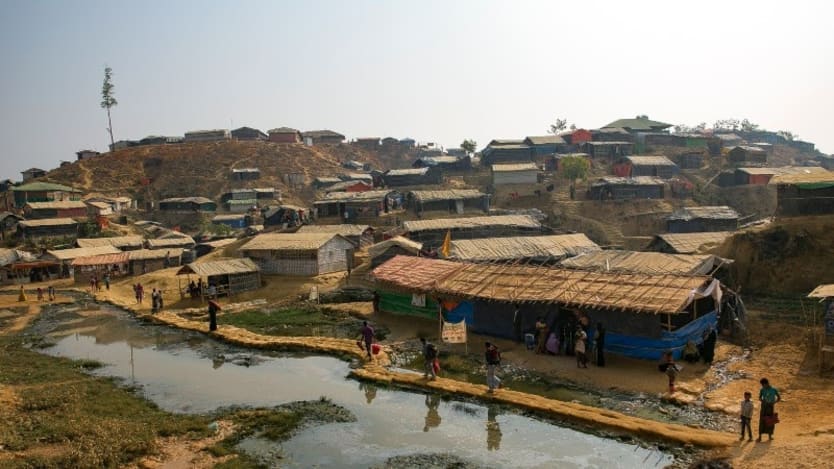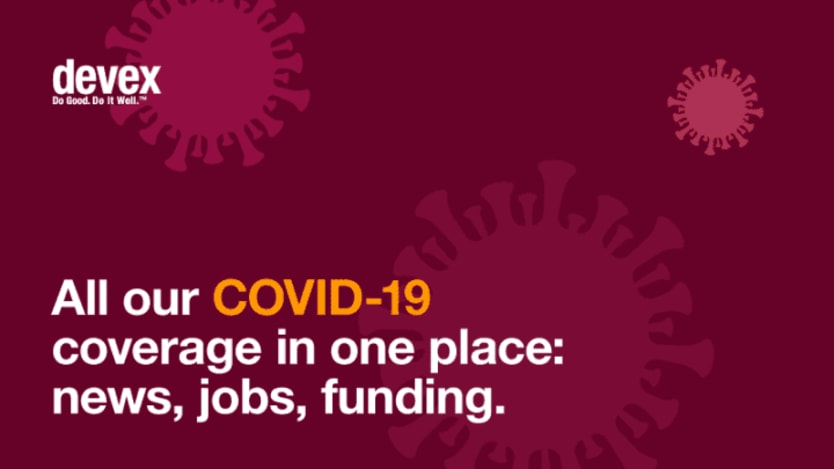
ALICANTE, Spain — The economic repercussions of COVID-19 mean low- and middle-income countries will have $396 billion less than projected for public spending on development from 2020-21, according to a report by End Water Poverty and WaterAid.
This could mean a major rollback on progress related to poverty reduction and allow the coronavirus to spread unhindered, warned John Garrett, senior policy analyst of development finance at WaterAid.
UK aid to be cut by £2.9B this year
The almost 20% ODA cut comes as the U.K. grapples with the economic fallout of the coronavirus pandemic.
“Without basic services such as clean water or basic health care, millions more will be pushed back into poverty, poor health, and diminished job prospects and life chances,” he said.
The report — which analyzed data from the Government Spending Watch initiative to gauge COVID-19’s impact on public finance — found that “the equivalent of 10% of domestic spending in SDG [Sustainable Development Goal] related sectors would evaporate over two years (2020 and 2021) compared to the 2019 baseline scenario in developing countries.” But Garrett said the figure is conversative and likely to be much higher.
With domestic resources being the biggest source of SDG financing, this could exacerbate the existing annual $2.5 trillion funding gap for the goals.
“Richer governments have the opportunity to ensure poorer countries can invest in essential services … without incurring crippling debts that ransom off their future.”
— John Garrett, senior policy analyst of development finance, WaterAid“In addition to that, the likelihood is that because donor countries are also in recession, they’re going to be cutting their aid budgets,” Garrett said.
Lower-income countries will likely receive $27 billion less in international public finance from 2020-2021 if donors maintain their current levels relative to gross domestic product, according to the report. With the fallout of COVID-19 wreaking havoc on economies, GDP is much lower in many countries.
“This report is identifying the need for a change in direction and mobilization of funding on a much greater scale than we’ve seen to date,” Garrett said.
The report suggests governments implement debt-related options — cancellations, standstills, and swaps — eliminate fossil fuel subsidies, and roll out new taxation measures, such as wealth taxes, carbon taxes, and airline ticket levies.
An increase in aid from governments of higher-income countries — raising the recommended level of giving from 0.7% of gross national income to 1% — is another option listed. That would almost make up for the lost domestic financing by providing an additional $350 billion annually, according to the report.
“Richer governments have the opportunity to ensure poorer countries can invest in essential services, such as water and sanitation and clean energy from renewable sources, without incurring crippling debts that ransom off their future,” Garrett said.
However, as governments the world over tighten their belts, there might be a lack of enthusiasm for such an increase.
Despite this, WaterAid is calling for renewed prioritization, solidarity, and investment from higher-income countries around SDG 6 — on clean water and sanitation — in the form of aid and grant-based funding. “This is all the more important now in the context of COVID,” Garrett said.









